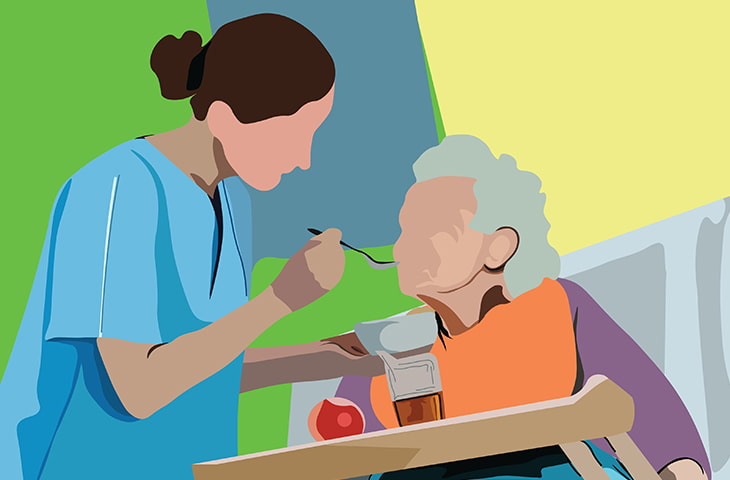What to Do When You Feel Mistreated by a Caregiver

Discover what actions to take if you experience mistreatment from a caregiver.
Experiencing mistreatment from a caregiver is a deeply distressing situation. Whether the issue is neglect, verbal abuse, physical abuse, or an overall lack of professionalism, it’s critical to take immediate steps to protect yourself or your loved one. Here’s what you can do if you feel mistreated by a caregiver.
1. Recognize the Signs of Mistreatment: The first step in addressing mistreatment is recognizing it. Caregiver mistreatment can take many forms, including physical, emotional, or financial abuse, neglect, or a general lack of attention to the care recipient’s needs. Be aware of signs such as unexplained injuries, sudden changes in behavior, poor hygiene, missed medications, or isolation from loved ones.
In addition to physical mistreatment, emotional abuse might involve belittling comments, intimidation, or neglecting the emotional needs of the care recipient. Financial mistreatment could include stealing money, misuse of resources, or coercing the care recipient into financial decisions. Understanding these warning signs is critical to identifying problems early.
2. Document the Mistreatment: If you suspect mistreatment, start by documenting the incidents in as much detail as possible. Write down specific dates, times, and behaviors that caused concern. If necessary, take photographs of injuries or physical evidence of neglect. This documentation serves as a record you can provide to authorities or family members if action needs to be taken.
The more detailed your documentation, the stronger your case will be if you decide to report the mistreatment to an agency, a lawyer, or law enforcement. Make sure your documentation is clear, specific, and factual.
3. Report the Issue to a Trusted Family Member or Friend: Once you’ve recognized and documented the mistreatment, confide in a trusted family member, friend, or advocate. Discuss your concerns and ask for their support. If a family member hired the caregiver, they must be informed about the situation to take appropriate actions.
If you are the caregiver’s employer, contact an advocate or legal professional to ensure that any actions taken are handled within the law and to prevent further issues from arising.
4. Contact the Caregiver’s Agency (If Applicable): If the caregiver was hired through an agency, contact the agency immediately to report the mistreatment. Most reputable caregiving agencies have procedures in place to investigate reports of abuse or neglect and can provide a replacement caregiver if needed. Provide the agency with your documentation, which can help with the investigation and resolution process.
Agencies are typically required to ensure their caregivers meet professional standards, and reporting issues to the agency can lead to internal reviews and accountability measures. If unsatisfied with the agency’s response, consider escalating the issue to a higher authority or switching to a different agency altogether.
5. Report to Adult Protective Services or Law Enforcement: In cases of severe abuse or neglect, it’s critical to report the mistreatment to Adult Protective Services (APS) or local law enforcement. APS is a government agency responsible for investigating cases of elder abuse, neglect, and exploitation. Provide them with your gathered documentation and any additional evidence of mistreatment.
If you believe your immediate safety is at risk, don’t hesitate to contact law enforcement for help. They can take action to ensure your safety and investigate any criminal behavior that may have occurred. In severe cases, legal action may be necessary to hold the caregiver accountable and prevent future harm.
6. Seek Legal Help if Necessary: In some cases, it may be necessary to involve a lawyer, mainly if the mistreatment has led to physical harm, financial loss, or other legal issues. A lawyer can assist you in understanding your rights and advise you on how to proceed with legal action against the caregiver or the agency. They can also help with compensation claims if financial exploitation or fraud has occurred.
Additionally, a lawyer can help implement proper protective measures to prevent future mistreatment. In cases where legal action is warranted, an attorney can be instrumental in advocating for justice on behalf of the victim.
7. Find a New Caregiver: After reporting and addressing the mistreatment, it is vital to ensure that future care is in safe hands. If the caregiver was part of an agency, you may be able to request a new one. However, if the caregiver was hired independently, it’s critical to thoroughly vet the next candidate. Conduct background checks, verify qualifications, and interview potential caregivers to ensure that they are trustworthy and capable of providing quality care.
Don’t rush this process—finding a reliable caregiver takes time, and it’s crucial to prioritize the safety and well-being of the care recipient when selecting a replacement.
Protect Your Well-Being in the Face of Caregiver Abuse
Experiencing mistreatment from a caregiver can be a difficult and overwhelming experience, but it’s essential to take immediate action to protect yourself or your loved one. By recognizing the signs of mistreatment, documenting incidents, and seeking help from trusted sources and authorities, you can address the problem and ensure that the care recipient is in safe hands moving forward. Whether through legal action or simply finding a new caregiver, you can demand respectful, compassionate care. For more caregiving resources and guidance, visit Boomer News.


